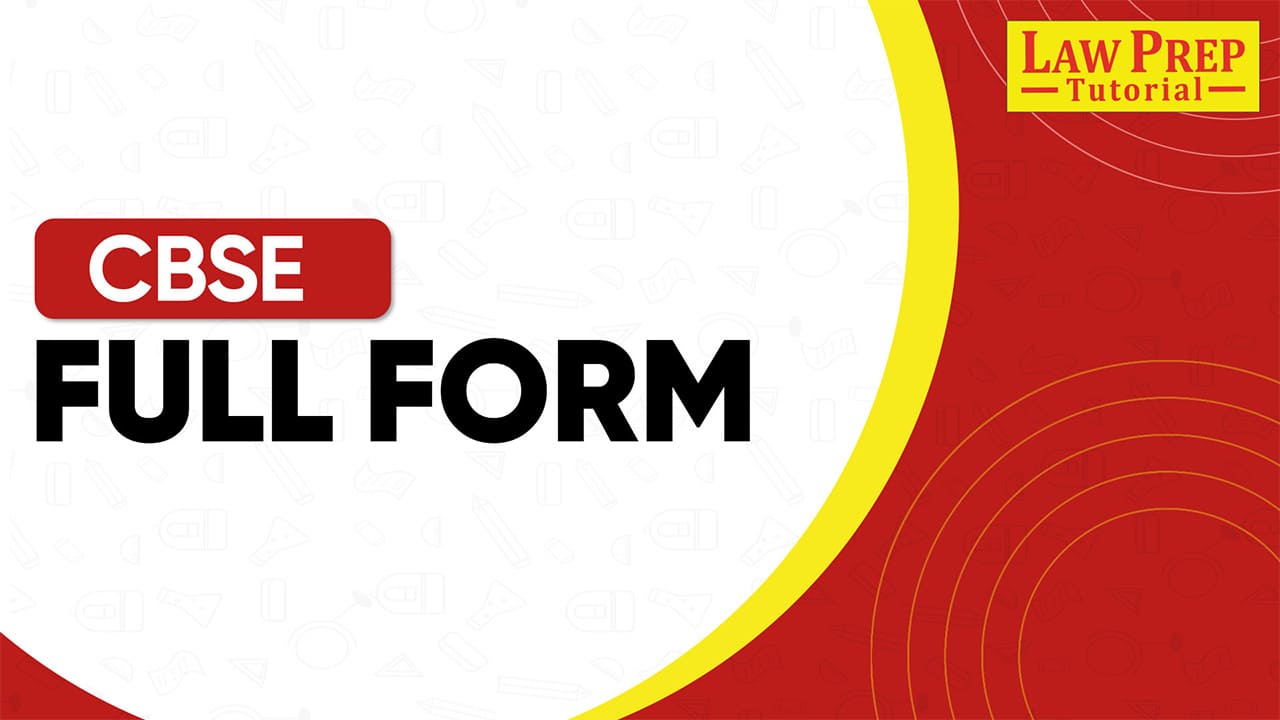CBSE is one of the most popular school education boards in India, followed by millions of students across the country. Whether you’re a student, parent, or educator, understanding the CBSE full form and knowing what is CBSE is essential for making informed academic decisions.
Full Form of CBSE Board
The full form of CBSE is Central Board of Secondary Education.
It is a national-level board of education in India for public and private schools, managed by the Government of India. The CBSE board full form reflects its role in offering standardized education across the country.
Known for its structured curriculum, CBSE conducts major school-level examinations like Class 10 and Class 12 board exams. The board also plays a vital role in shaping school education policies.
Many students and parents search for the CBSE full form in English or ask what is the full form of CBSE board, especially during admissions.
CBSE Full Form in English and Hindi
Below is the CBSE full form in English and Hindi clearly:
| Language | Full Form |
| English | Central Board of Secondary Education |
| Hindi | केंद्रीय माध्यमिक शिक्षा बोर्ड |
History and Formation of CBSE
The Central Board of Secondary Education (CBSE) was first established in 1929 as the Board of High School and Intermediate Education, Rajputana. It was created to serve schools in regions like Ajmer, Merwara, Central India, and Gwalior. In 1952, it was renamed the Central Board of Secondary Education, and its jurisdiction was expanded.
CBSE was formed to provide a common platform for all students in India, especially the children of central government employees who are frequently transferred. Over the years, CBSE has evolved into one of the most trusted and widely followed school education boards in India
Objectives and Functions of CBSE Board
The Central Board of Secondary Education (CBSE) aims to provide quality education that promotes intellectual, social, and cultural development among students. Its key objectives and functions include:
- Prescribing Curriculum: CBSE designs and updates syllabi for Classes 1 to 12, focusing on skill-based and conceptual learning.
- Conducting Examinations: It conducts national-level board exams for Class 10 and Class 12, ensuring standardized assessment across affiliated schools.
- Affiliating Schools: CBSE grants affiliation to public and private schools across India and abroad under set guidelines.
- Promoting Innovation: Encourages schools to adopt innovative teaching methods, digital learning, and co-scholastic development.
- Ensuring Educational Equity: CBSE promotes inclusivity by setting policies that support students from diverse backgrounds and regions.
- Training Teachers: Organizes regular training and capacity-building programs for teachers to improve teaching standards.
More Important Resources for CBSE Exam:
| Class 11th Hornbill Syllabus | CBSE Class 11th Commerce Subjects |
| Class 11th Commerce Books | All about CBSE Class 11th |
| Class 11th Syllabus | Class 12th Syllabus |
CBSE Board Exams in India
The CBSE Board Exams are a key part of school education in India, conducted for Class 10 (Secondary) and Class 12 (Senior Secondary) students every year. These exams typically take place between February and April, with millions of students appearing across India and abroad.
- For Class 10, the exams assess a student’s grasp over core subjects like Mathematics, Science, Social Science, English, and Hindi.
- For Class 12, students appear based on their chosen stream—Science, Commerce, or Humanities.
CBSE ensures fair and transparent evaluation through a centralized marking system, and results are released online through its official website.
FAQs About CBSE Full Form
CBSE is an educational board in India responsible for conducting Class 10 and 12 exams and designing the curriculum for affiliated schools.
CBSE stands for Central Board of Secondary Education.
In English, the full form of CBSE is Central Board of Secondary Education.
In Hindi, CBSE is called केंद्रीय माध्यमिक शिक्षा बोर्ड.
Yes, CBSE is a national-level education board managed by the Government of India.
CBSE aims to provide quality, uniform education across India and ensure students are prepared for higher studies and competitive exams.
CBSE designs curriculum, conducts exams, affiliates schools, trains teachers, and promotes innovation in education.
Yes, CBSE has schools affiliated in 26+ countries, mostly catering to Indian students abroad.
Read the chapter-wise summaries of Class 11 English here:
Find detailed questions and answers from all chapters of English Class 11 now:
Check the latest CBSE Class 11 syllabus for all subjects below:
Explore the updated CBSE Class 12 syllabus for all subjects here:
Discover CLAT exam resources that can help you get started early:
Explore CLAT coaching centers across different cities:


